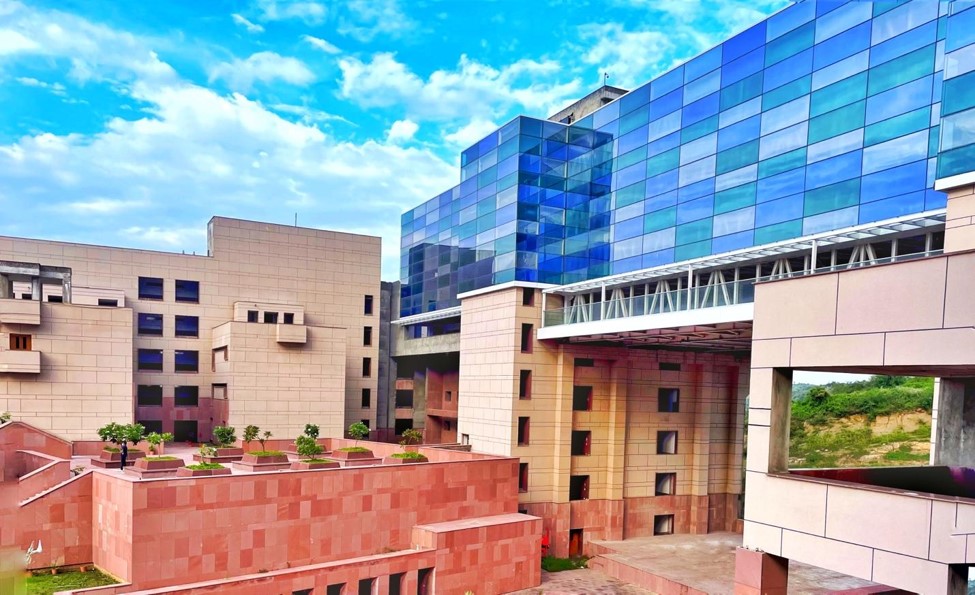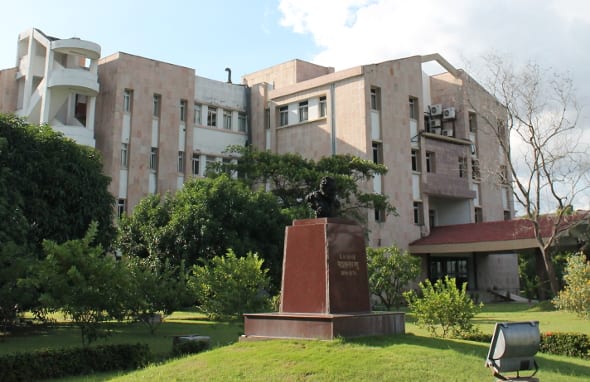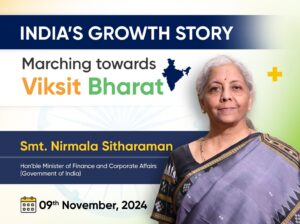HYDERABAD : The last date to apply for the Post Graduate Programmes viz. Diploma in Rural Development Management and Postgraduate Diploma in Rural Management (PGDM-RM) offered by the National Institute of Rural Development and Panchayati Raj (NIRDPR), Hyderabad, is 10th April 2020. These courses have fast emerged as a key source of talent suitable for Rural Development programmes for both the Government and Corporate Sectors.
The course boasts of having achieved a 100 per cent placement rate since Batch One in 2008 with highly competitive salaries. Some of the top recruiters from this course include:
- State Rural Livelihood Missions
- NRLM (National Mission Monitoring Unit)
- ICICI Foundation
- IKYA – Global
- ‘National Rurban Mission’ and ‘State Rurban Missions’
- National Fisheries Development Board
- HCL Foundation, among others
Some of the students of previous batches are also working in UN organizations like UNDP, UNICEF and UN-Women, among others besides in reputed international consulting firms like PWC – India, Ernst &Young, among others
Highlighting the growth in importance of Rural Development Sector, Dr. W.R. Reddy, IAS, Director General, NIRDPR, said,“This is an exciting time to build expertise and make a career in Rural Development. The confluence of policy, technology, and purpose have made what was once the preserve of a few well-meaning and hardworking individuals, an open field for innovation of the sort that will drive transformation. Government, non-government and private enterprises are all involved in rural development initiatives.”
Applications are to be submitted only online at http://nirdpr.org.in/pgdrdm.aspx. Downloaded applications will not be accepted. Further details are available at the institute website – www.nirdpr.org.in
A residential immersive programme, with a curriculum designed specially to develop a committed and competent cadre of Rural Development Management Professionals in the country, the graduates of this two-year PGDRM have gone on to fill senior leadership and mid-level positions in four broad areas, namely:
- The Corporate sector (working on skill development projects)
- State Livelihood Rural Missions (SLRMs),
- NIRDPR (across thematic projects), and
- Government (across audit and scheme-based functions)
The Institute is proud of the batches of graduating students from PGDRDM programme who are a living testimony of the mandate we strive to fulfill – to develop a cadre of committed, competent and passionate rural development professionals. Placements and feedback from employers are heartening. They speak warmly of the students and are particularly appreciative of their ability to work at the grass-roots level, with empathy and commitment, their readiness to live with the community and understand their problems.
NIRPD offers a range of courses that address key policy and management issues in rural development that will enable students to develop management, analytical and planning skills. As a think-tank for the Ministry of Rural Development, Government of India, NIRDPR while acting as a repository of knowledge on rural development, also assists the Ministry in policy formulation and choice of options in rural development to usher in changes.
The past five years have witnessed students enrolling in the programme from diverse backgrounds and geographies. 30 per cent of the students have been from South India, 21 per cent from the western region, 21 per cent from the eastern region, 10 per cent from Central India, 6 per cent from the North East, 5 per cent from the north and 7 per cent international students. The students included those with a background in Engineering, Science, Commerce, Management, Social Work and Agriculture.
The one-year programme is spread over three trimesters and consists of three major components: classroom teaching and interactive learning; short and long field visits; and rural organizational internships, which equip the students with skills to better implement policies and provide them with core development and management insights and impart analytical skills for planning and managing Rural Development Programmes. The two-year programme is spread over six trimesters providing students opportunities to learn Advance courses relevant to the Rural Development sector.
Benefits and outcomes of the course
NIRDPR has vast experience of training development professionals, Government officials, civil society, elected representatives and young professionals. The students perusing PGDRDM or PGDM(RM) course develop values of commitment by getting exposure to the extensive field visits and interacting with renowned development professionals. They learn how to harness the scale enabled by government, the commitment of the public sector, the passion of the NGO sector, and the agility of the private sector.









